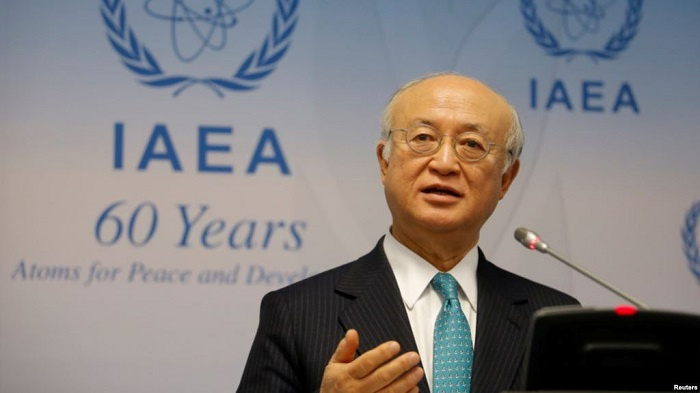2017; year of Iran-IAEA close cooperation

By: Hassan Shokouhinassab
After taking office as the United States president, Donald Trump has been trying his best to kill the Joint Comprehensive Plan of Action (JCPOA). The US authorities kept holding anti-JCPOA stances, so that they might be able to find a convincing reason to quit the deal after a few years.
Contrary to what the US expected, the IAEA repeatedly confirmed Iran's commitment to the deal, Britain supported the international agreement, and Iran rejuvenated its air fleet through the JCPOA proving that all efforts made by the US Republicans and the White House against the Nuclear Deal have been in vain.
The IAEA published reports about Iran's nuclear activities at regular intervals – every month and every season. Referring to the biggest achievements and moves of the IAEA, the reports announced that the International Atomic Energy Organization has constantly investigated Iran's activities and has not seen any sign of lack of commitment.
As a signatory to the JCPOA, The UK has backed the deal in several comments made at different occasions. The UK Secretary of State for Foreign Affairs Boris Johnson said that the deal was still alive and should be supported. Calling the JCPOA an important deal, Johnson also urged members of the United Nations Security Council (UNSC) to cooperate with each other to keep the international achievement.
Johnson also said that the US is still part of the deal, and that it is necessary that the UNSC members work together to safeguard the deal; this is while the US president did not reaffirm Iran's compliance with the deal although the IAEA has confirmed Iran's compliance.
Following the signing of the JCPOA and lifting of the sanctions on Iran, the country signed contracts to buy 100 aircrafts from Airbus, 80 from Boeing, and 20 from ATR.
Not only are the US authorities' anti-JCPOA remarks nothing new, but, after Trump became the president, it changed into something common. The policy pursues weakening of Iran and its power to form coalitions in Western Asia.
US Secretary of State Rex Tillerson has recently called the deal flawed and said that the deal is no longer central to Washington's policies toward Tehran.
Tillerson said the US is now countering Iran's threat and detailed on the US strategy on that.
“Part of this strategy entails rebuilding alliances with our partners in the Middle East,' Tillerson added.
He continued, “We will continue to work with our allies and with Congress to explore options for addressing the nuclear deal’s many flaws, while building a like-minded effort to punish Iran for its violations of ballistic missile commitments and its destabilizing activities in the region.”
On the other hand, saying that the US Congress has become more active in foreign policy than before, US Senator Ben Cardin (D-Maryland), who is a member of Senate Foreign Relations Committee as well, said that the US should not unilaterally quit the JCPOA.
The JCPOA has turned into the most important issue in the US Congress; 24 members of the Congress sent a letter to Tillerson and to US Secretary of Defense James Mattis and Director of the Central Intelligence Agency (CIA) Mike Pompeo, to claim that Iran has violated the deal eight cases.
They accused Iran to have violated not only the spirit but also the letter of the deal.
Translator: Hossein Abolqasemi
Editor: Fateemeh M. Safaei
Source: IRNA

